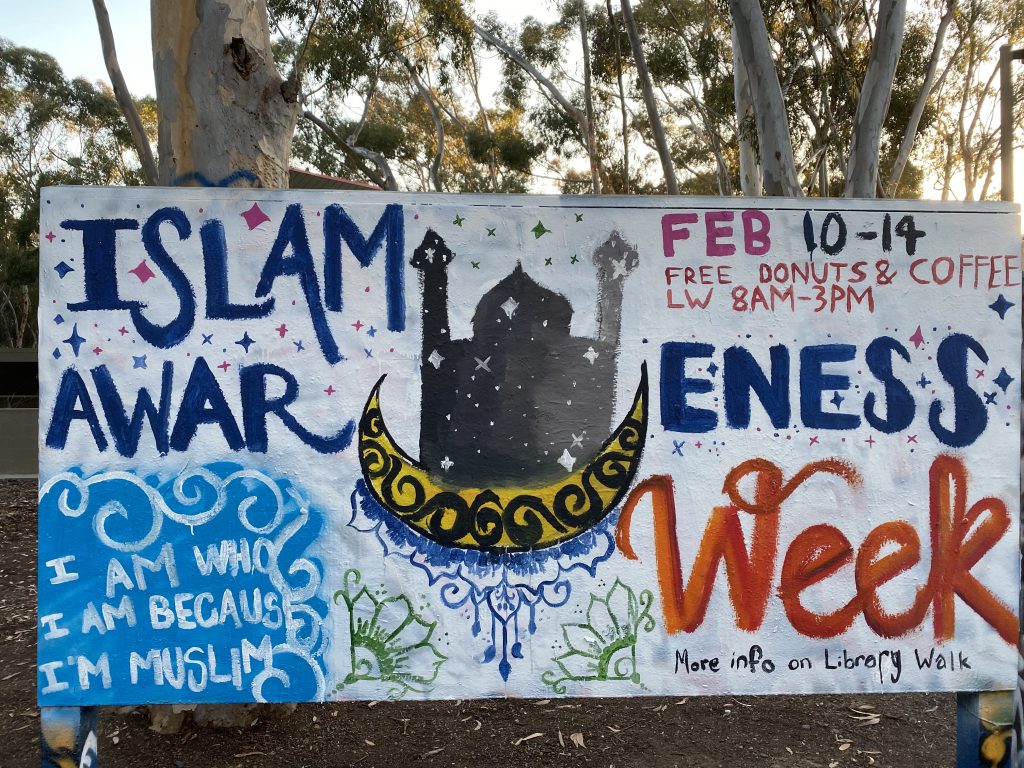Amendment 1 of the Bill of Rights in the U.S. Constitution expresses the sentiment that Congress will not make laws preventing people from exercising free religion or demanding that people follow a specific religion. Furthermore, it grants people the right to freedom of speech. This relates to the picture below of the graffiti boards near the student center. These graffiti boards are used for students to artistically exercise their freedom of speech and for years, students have used them to make a statement, philosophical, political, or otherwise. In this particular picture, the board in question addresses Islam Awareness Week. In the corner it states, “I am who I am because I’m Muslim.” The person who made this makes a very important statement: their religion is a part of their identity. As a part of the U.S. Constitution, freedom of religion is guaranteed to all. Yet in recent times due to terrorism on the part of some individuals, the entire religion of Islam has been discriminated against and looked down upon. This student clearly and proudly states, however, that the people they are today can be attributed, at least in part, to their religion. So here we see this student exercising both their rights to freedom of speech and freedom of religion against opposition. Therefore, we see the very existence of these graffiti boards as a manifestation of the rights of freedom of speech and religion granted to us in the Bill of Rights, proof that we still try to stick to the values our ancestors intended America to have. From this comes the question: if religion is linked to one’s identity and should be protected, should all parts of our identity be protected by the law? What other parts of our identity (that aren’t addressed by the Bill of Rights) do we still need the government to protect?

